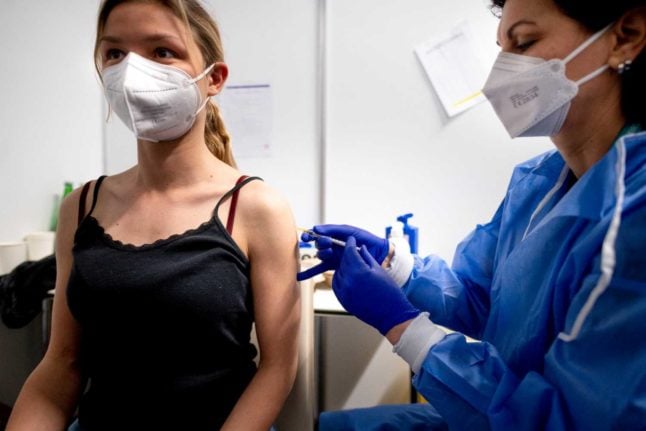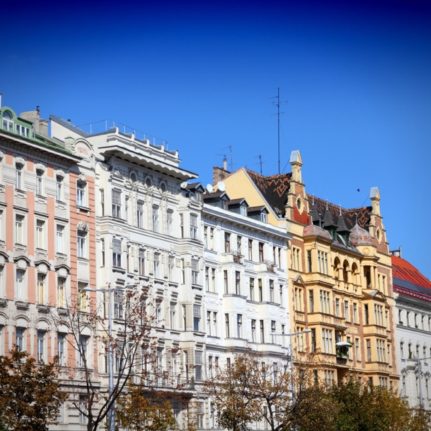Company doctors could begin giving vaccinations in May
Company doctors – i.e. in-house doctors serving one or a handful of companies or businesses – should start giving vaccines from the beginning of May as well as vaccination centres and GPs.
The Austrian vaccination plan is back on track thanks to the early Biontech/Pfizer delivery, according to the Ministry of Health’s vaccine coordinator Katharina Reich, Der Standard newspaper reports.
More than two million doses have been administered so far.
The vaccination of the over 65-year-olds has already been completed in many federal states, in May the over 50-year-olds will have their turn and by the end of June everyone should receive a vaccination who wants one.
Vienna opening plan hangs in the balance
It is still undecided whether Vienna will open up its museums and retail when its current lockdown expires on 2nd May, broadcaster ORF reports.
A spokesman for the Mayor of Vienna Michael Ludwig (SPÖ) confirmed this yesterday in response to an APA request.
A decision will made on Tuesday. It is also unclear if Vienna will open its restaurants and hospitality when Austria opens up its gastronomy, culture, tourism and sport on 19th May.
READ MORE: Austria to relax most coronavirus measures on May 19th
Experts concerned about plan to open up Austria in May
Experts are concerned about Austria’s plans to open up in mid May, Der Standard newspaper reports. Virologist Dorothee von Laer believes warmer weather and increased vaccination could allow openings.
However, she warns against unlocking in regions such as Tyrol where a virus mutation is circulating.
Microbiologist Michael Wagner thinks the opening plan is “too risky”, it is reported. APA reports the traffic light commission chairman Ulrich Herzog said that the current situation shows parallels to that in autumn, when the number of infections subsequently increased explosively.
One million people tested for coronavirus with gargle tests
Around one million people have been tested for coronavirus using Vienna’s gargle tests according to Der Standard newspaper. Of these, 0.56 percent were positive, meaning 5,748 Covid infections were detected.
Seven day incidence at 182
The seven day incidence, or number of coronavirus infections per 100,000 people is is 182.
Vorarlberg currently has the highest incidence (240.2), followed by Vienna (214.0). The value is lowest in Burgenland (99.9) and Lower Austria (126.3), according to broadcaster ORF.
Children return to school in Vienna and Lower Austria
All schoolchildren are returning to schools in Vienna and Lower Austria today, broadcaster ORF reports. Until May 16, elementary schools will receive face to face classes, while children will be taught in shifts at middle schools, special schools, AHS, vocational schools and vocational schools – with the exception of those in the final year of school.
Austria 16th for start up financing in Europe
Ernst and Young data shows Austria ranked 16th in start-up financing in Europe in 2020, the Wiener Zeitung newspaper reports.
The total amount of the publicly known financing rose in from €183 to €212 million. The crypto trading platform Bitpanda received the most funding in Austria, €45.6 million, followed by the construction app company Planradar with €30 million euros and the marketing data start-up Adverity with €26.3 million.
Climate law could mean automatic tax increases
A draft for the climate protection law planned by the ÖVP and the Greens provides for automatic tax increases should CO2 emissions deviate from the climate targets set, Die Presse newspaper reports, picking up on reporting originally in the Krone newspaper.
Environment Minister Gewessler confirmed on Sunday in the ORF “press hour” that this was a proposal from her department to prevent climate targets from being missed again as in the past. Gewessler said if the government did not act it could cost €9 billion by 2030.
More investment in sustainable funds
The Austrian fund volume of sustainable investment funds increased in the first quarter by around €2.7 billion to €20.1 billion euros Die Presse newspaper reports.
The net inflows of the sustainable investment funds amounted to around €1.8 billion.
Die Presse newspaper argues the sustainability trend is also an argument for the industry to make actively managed funds attractive to investors, because active funds generally generate more money for the banks than passive ETFs, which only track an index.



 Please whitelist us to continue reading.
Please whitelist us to continue reading.
Member comments